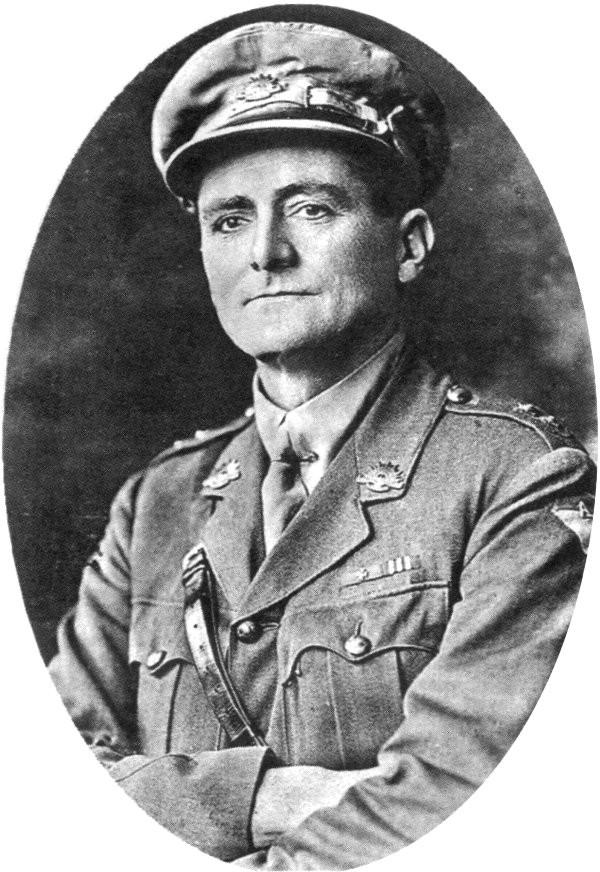Captain Albert Chalmers Borella, 26th Battalion A.I.F., Queensland and Tasmania
By JOL Admin | 23 October 2014

Recently an inquiry was received at the State Library of Queensland for information regarding Albert Chalmers Borella. Albert was the son of Louis and Annie Borella née Chalmers and was born at Borung in Victoria and educated at the state schools in Borung and Wychitella.
On completion of his education he became a farmer assisting his father on his farm until 1910, he later went to Melbourne and joined the Metropolitan Fire Brigade, resigning in January 1913. With two other firemen, E. Parker and A. Lewis they took up land in the Northern Territory.
Hearing about the outbreak of war Albert decided to enlist but found there were no enlistment camps in the Northern Territory, due to a shortage of labour the government disallowed recruitment. Albert was determined to serve his country and made his way overland with a camel train, then had to swim across several creeks and encounter many difficulties traversing the top end. He caught a ship out of Darwin and sailed down the coast to Townsville, where he enlisted as a private on the 15th March 1915. He with many others left Brisbane on the 24 May 1915, on board HMAT Ascanius A11, He fought at Gallipoli, and was wounded in France at Pozieres, gaining his Military Medal in 1916, he was also mentioned in despatches for good service. He returned to the firing line on May 11 1917 and was promoted to Sergeant receiving his award for bravery in the field.
He gained further honors for his acts of gallantry in the face of the enemy and was awarded the highest and most prestigious award, The Victoria Cross, in 1918, while a Lieutenant in the 26th Battalion. He received his VC at Sandringham from George V of the United Kindgom.
The Press of the day reported that Lieutenant Borella, while leading his platoon in the first wave he noticed a machine gun firing through the barrage. He ran ahead of his men into the barrage, killing with his revolver two of the machine gunners, capturing the gun.
He led his men who had been reduced to 10 and two Lewis guns against a strongly held trench. The garrison of which was shot or captured and two dugouts bombed. The enemy twice counter- attacked on the second occasion outnumbering the platoon by 10 – 1. Borella’s cool determination inspired his men to resist and the enemy was repulsed with very heavy losses.
hereGraphic of AustraliaHe returned home and in 1924 he stood for the Electoral division of Dundas, in the Victorian Legislative Assembly, as the National Party of Australia candidate, but was defeated. Borella enlisted in World War II, and served in Australia from October 1939 to May 1945, obtaining the rank of Captain (land and air) he settled in Albury, New South Wales and is buried in the Presbyterian cemetery in North Albury.
In 1977 a street in Albury was renamed Borella Road in his honour and a plaque unveiled on a memorial nearby, where the road begins. He spent the entire war with the 26thBattalion, a Queensland and Tasmanian combined battalion, his Victoria Cross is privately held. Information was gathered from various sources including Reuter's Telegrams via Trove
Service dossiers and enlistment applications
The service personnel dossiers of men and women who served during World War I, are held in series B2455 at the National Archives of Australia. You can access information to this series through this link as well as other useful records.
thOM69-28Janette Garrad – Original Content Technician, State Library of Queensland
Comments
Your email address will not be published.
We welcome relevant, respectful comments.